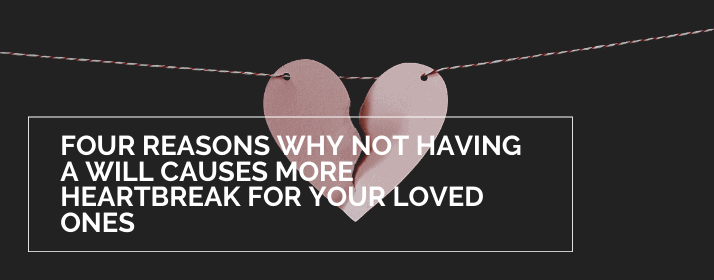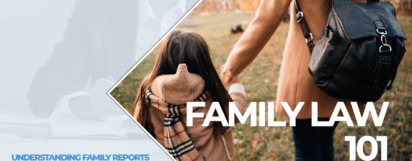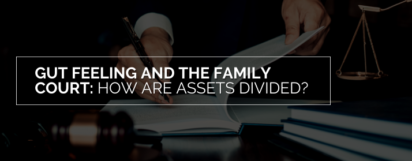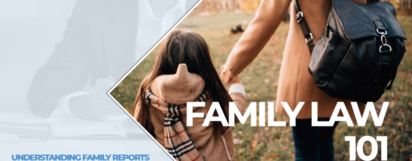-
Freeman Family Law
Operating Since 1992

Wills are not something most people like to spend a lot of time thinking about, and really, you can’t blame them. It’s a rather difficult – and morbid – subject. Unfortunately, however, the cost of not having one is often greater in more ways than people realise. At a time where your family and loved ones will already be dealing with significant grief, the lack of a professionally written and properly documented will often add more unnecessary pain and suffering to a time that is already unbearable.
Throughout life, there will be many opportune moments to consider having a will drafted, or redrafted if you already have one. But the failure to take these opportunities can cause costly, particularly if your passing is unexpected. So, just in case you’re still sitting on the fence, here are four crucial reasons not having a will will cause more heartache for your loved ones in what will already be an extremely difficult part of their lives.
Save loved ones’ anxiety and uncertainty
The passing of a loved one is a tough enough time as it is, but it is particularly tough when the deceased leaves behind dependents. When those dependents lose someone whom they rely on for anything from shelter to money, this time can bring especially high levels of stress and anxiety. This is even more true of cases where the deceased has not left a will. The failure to leave a will often creates uncertainty, even for children and spouses (married or de facto) of the deceased. Whilst it is often assumed the estate will be left for children and next of kin in the event of someone’s passing, without a will, this is not always the case.
Furthermore, it can create significant and costly delays to those dependents accessing their inheritance. These delays might mean those you leave behind struggle to meet existing financial commitments, such as mortgage repayments or school fees and lead to significant hardship, both in the short and long term.
Family disputes
As well as increased stress and anxiety for dependents who may be relying on an inheritance to meet ongoing financial obligations, the failure to leave behind a professionally written will can cause disputes within the family. The added pressure of these disputes causes more than just heartache and sorrow. They can also add significant legal costs to those who may now need to make claims for the estate. The disputes that can be caused in the aftermath of a loved one’s passing can often be long-lasting or even permanent and lead to family rifts you never intended.
Extra costs to the estate and possible tax consequences on sale of assets
The costs associated with administering an estate in the aftermath of someone’s passing when no will has been left behind are often borne by the estate itself. This means that what you leave behind for your family and loved ones may be significantly less than you intended by the time the estate covers its costs. Associated costs might include:
By not leaving a will or leaving an invalid will, you may end up incurring costs that reduce the total estate left to divide between those you leave behind.
Your assets may not go where intended
If you die without leaving a will, or your will is invalid, the law will decide who gets your assets according to a rigid formula. These laws apply to everyone and make no consideration for your wishes or circumstances. When this happens, an application for a Grant of Letters of Administration will need to be made to the Supreme Court. In most instances, the grant is made to the next of kin of the deceased. For example, the spouse, domestic partner or a child of the deceased. These laws changed on 1 November 2017 and apply to everyone who dies without a valid will on or after that date. In the first instance, the estate is often given in its entirety to the partner (if there is a de facto or married partner) of the deceased. If there are children from a previous relationship, some of the estate may also go to those children, depending on how much money is left in the estate. If the person had no partner or children then all the estate goes first to:
The estate does not pass to the government unless there are no living relatives. However, it is far better to set out your wishes in a carefully drafted will. If you do not currently have a will and would like to get some advice from an experienced Family Lawyer, we invite you to contact Freeman Family Law today for an obligation free chat with our Wills & Estates team.
Call us today on 03 9326 4433 or get in touch via our Contact Us page!
Freeman Family Law has been assisting clients for over 30 years on matters involving divorce or separation, complex financial and property issues, as well as advice on parenting and wills & estates. Book an appointment with an Accredited Family Law Specialist online or at one of our offices in Yarraville, South Melbourne, Caroline Springs, Essendon or Mornington.
Enquire Now
Coronavirus (COVID19) Outbreak 

Parenting Orders & COVID 19 

Preparing for your first online family law consultation 

The Bank of Mum and Dad: What to consider when helping children buy property 

Family Law 101: What to do when you receive a letter from a family lawyer 

The Aussie ‘Prenup’: Understanding Binding Financial Agreements Duri ... 

What happens when couples kiss and makeup…and separate again? 

Family Law 101: Understanding Family Reports 

Report: 42 per cent of people have experienced a negative change in their relati ... 

We’re Open For Business | A Freeman Family Law Stage Four Lockdown Update 

Protecting children from “Unacceptable Risk” 

Who gets what? How inheritances are treated in family law 

Tick, tock: Time limits and post-divorce/post-separation applications for proper ... 

Gut feeling and the Family Court 

Christmas, Separation and Kids: Handling Holiday Arrangements 

Time is Money: Why Mediation could be a better solution to your Family Court mat ... 

What is Collaborative Law? 

The Merging of the Family Law Courts – What Has Changed? 

Relationship Property Settlements for Business Owners – What You Need to K ... 

Family Law Property Settlement for Business Owners: What You Need To Know. 

Accredited Specialists Freeman Family Law announce new office in Mornington Peni ... 

Can a judge order that a child be vaccinated against one parent’s wishes? 

Can a parent get a child vaccinated if the other parent disagrees? 

To vaccinate or not to vaccinate for young children – what if parents can& ... 

Accredited Specialists Freeman Family Law open new office in Dromana 

The Brady Bunch and Mutual Wills 

“Justice” in Family Law 

When Experts Get It Wrong 
Or Send us A Message
Enquire Now